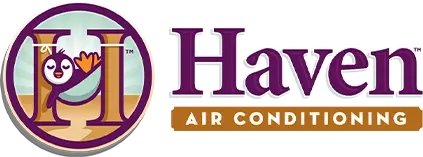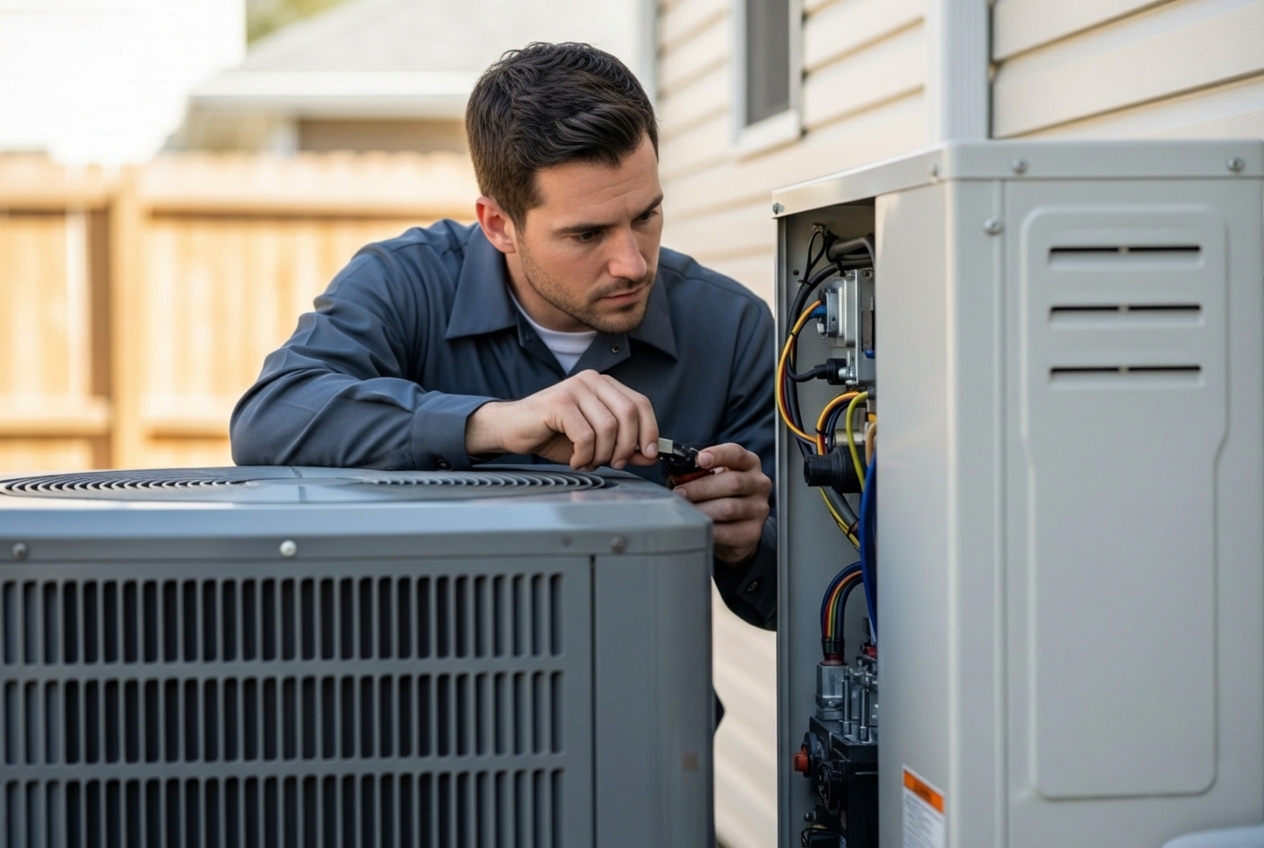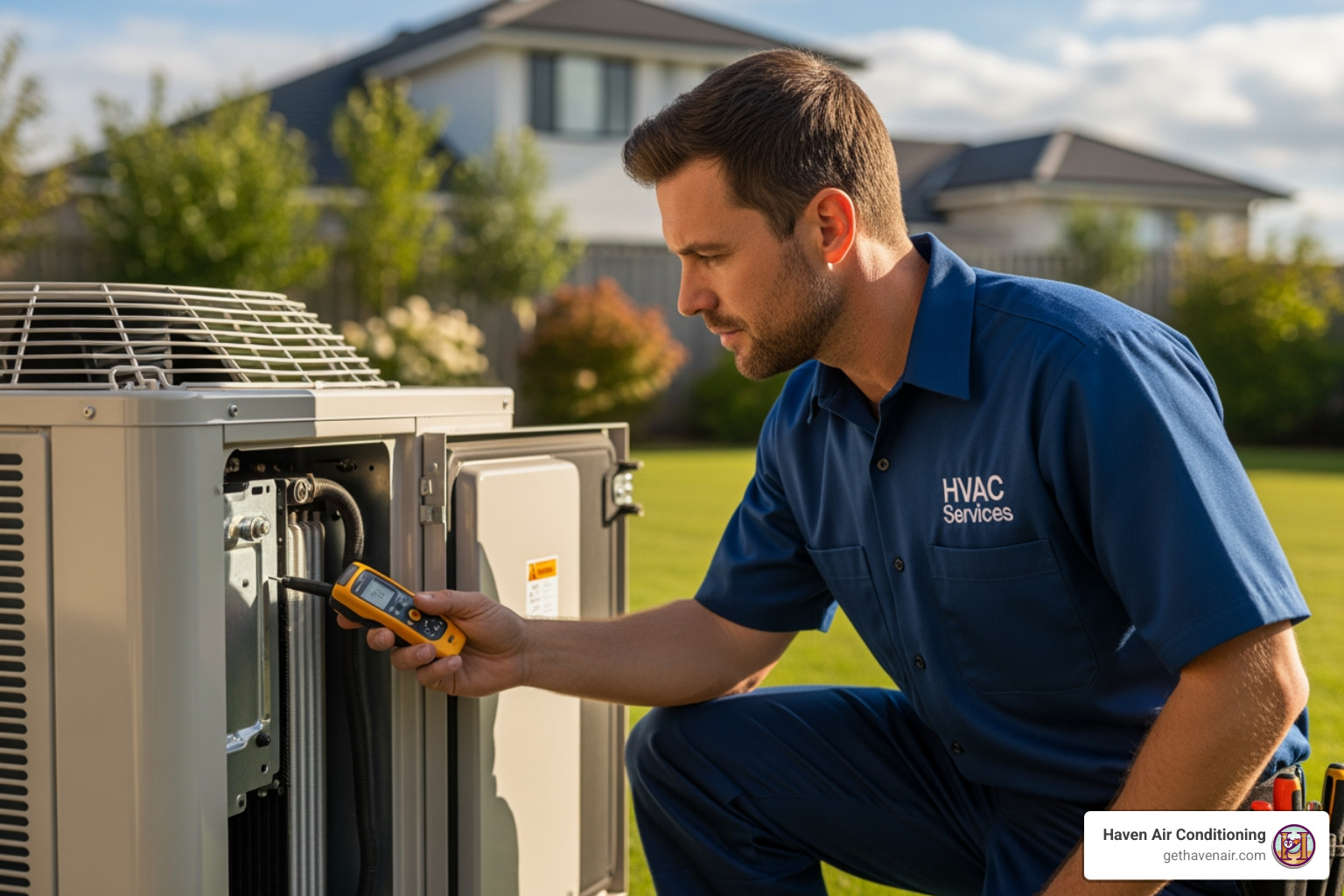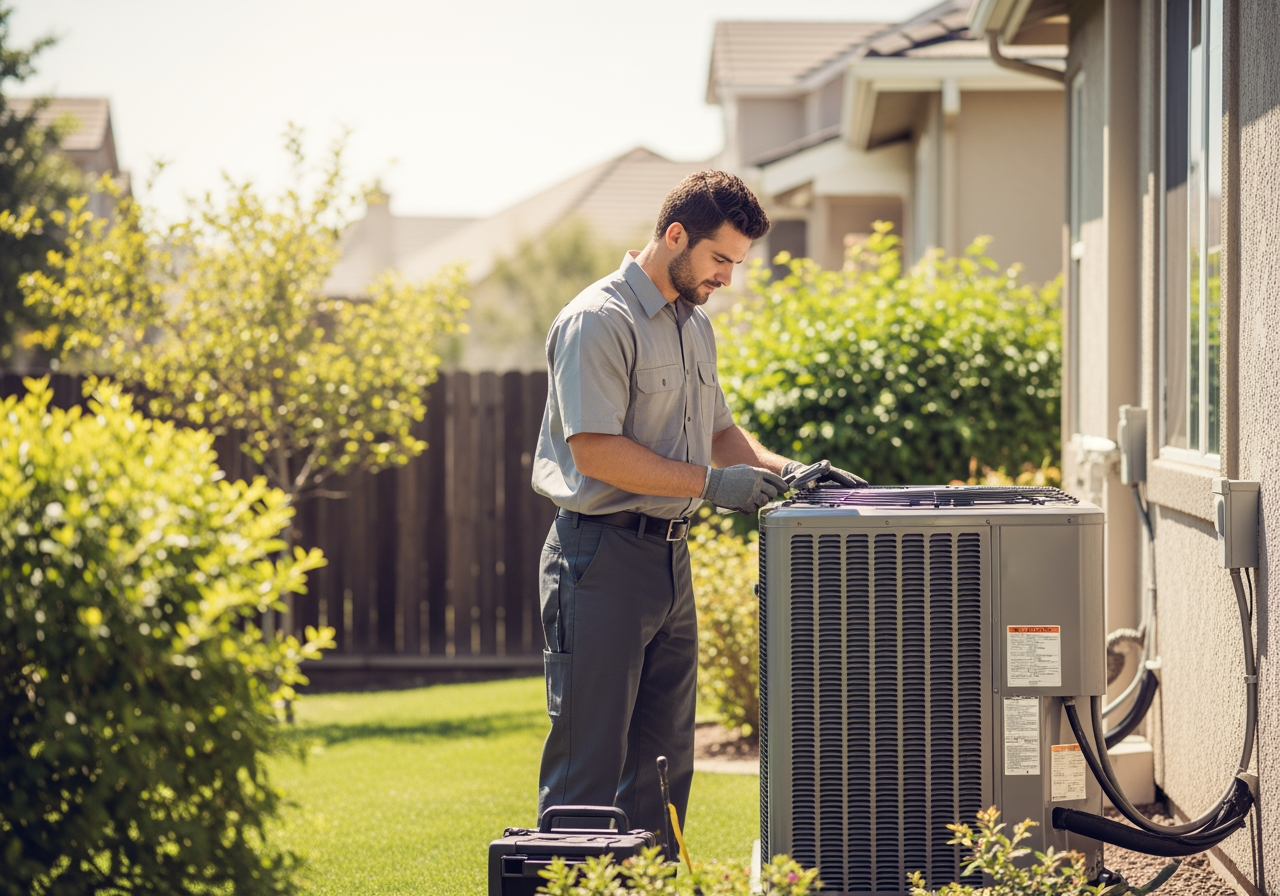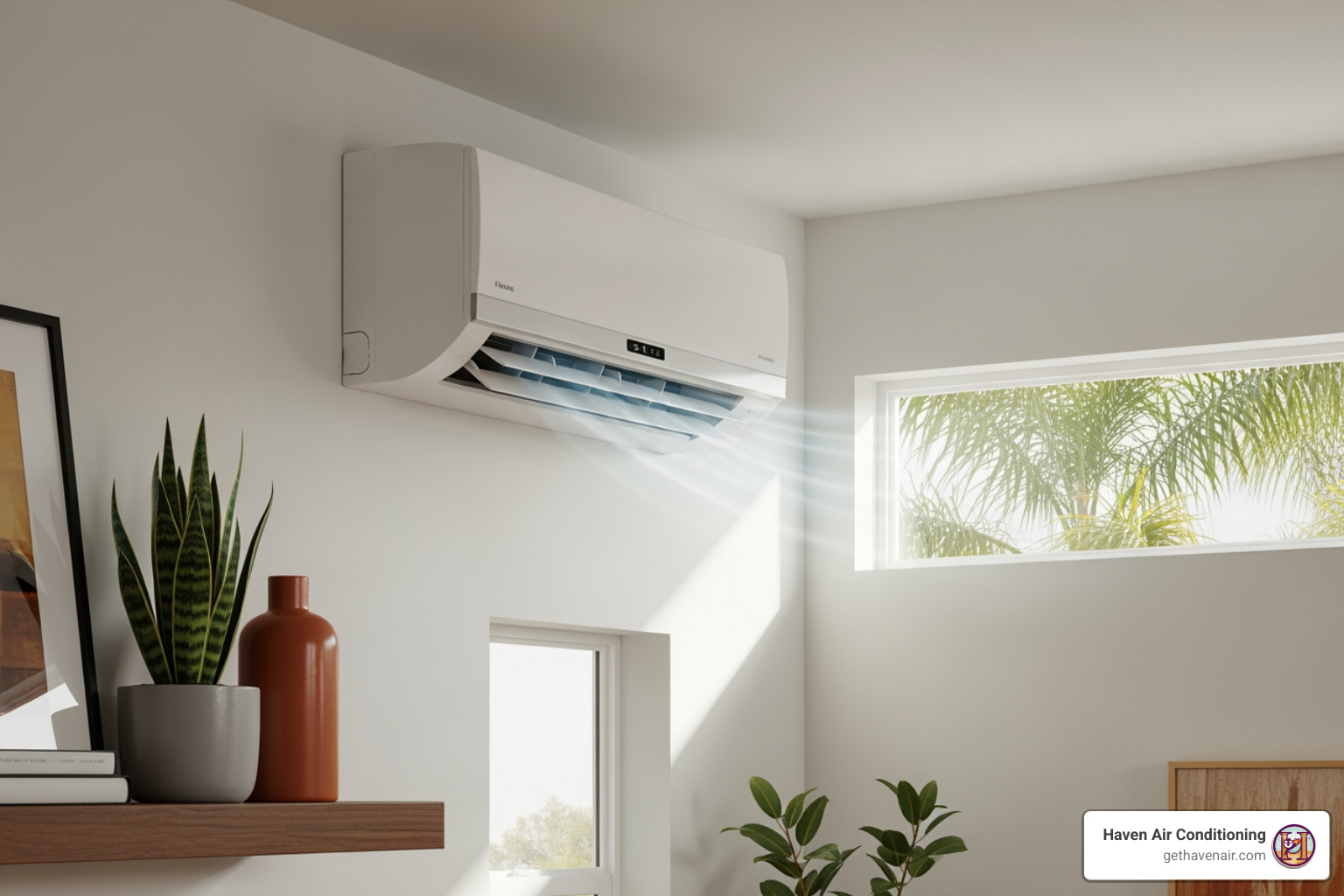Understanding The Importance Of Airflow In HVAC Systems
Proper airflow is essential for maintaining peak efficiency and ensuring a comfortable indoor environment in your heating, ventilation, and air conditioning (HVAC) system.
Airflow refers to the movement of conditioned air through your HVAC system, including both supply air (the conditioned air being delivered into your living spaces) and return air (the air being pulled back into the system for reconditioning).
Inadequate airflow can have significant consequences on both the performance of your HVAC system and your overall comfort. Here are some key points to understand its significance:
- Impact on Efficiency: Restricted or inadequate airflow puts unnecessary strain on various components of your HVAC system, leading to reduced energy efficiency as equipment works harder to achieve desired temperature levels.
- Comfort Issues: Inadequate airflow can result in uneven heating or cooling throughout different areas of your building, causing discomfort with hot or cold spots that make certain rooms less desirable than others.
- Health Risks: Poor airflow can impact indoor air quality by allowing pollutants, allergens, and contaminants to accumulate within living spaces, potentially leading to respiratory issues and other health concerns.
It’s crucial not to overlook these potential problems associated with poor airflow if you want to maintain a healthy and comfortable environment within your home or office space.
Identifying Signs Of Poor Airflow
Understanding the significance of airflow in HVAC systems is essential for maintaining optimal performance, energy efficiency, and comfort levels within your home or commercial space.
- Airflow Definition: Airflow refers to the movement of conditioned air through your vents and ductwork. It plays a critical role in distributing conditioned air evenly throughout your space, ensuring consistent temperatures and proper ventilation. Without adequate airflow, your HVAC system will struggle to maintain comfortable indoor temperatures.
- Impact on Efficiency and Comfort: Poor airflow can significantly reduce the overall efficiency of your HVAC system. When there isn’t enough air flowing through the ducts, it puts unnecessary strain on various components such as fans and motors. This increased workload leads to higher energy consumption and a shorter lifespan for your equipment.
- Potential Health Risks: Inadequate ventilation caused by poor airflow can result in stagnant indoor air quality (IAQ). Stagnant IAQ can lead to a buildup of pollutants like dust mites, allergens, mold spores, and volatile organic compounds (VOCs). Regular exposure to these contaminants can trigger allergies or respiratory issues such as asthma.
Understanding how vital proper airflow is for your HVAC system’s functionality should alleviate any concerns you may have about investing time into improving it.
Common Causes Of Poor Airflow
Maintaining proper airflow is essential for the efficient operation of your HVAC system. When airflow is compromised, it can lead to a variety of issues that impact both comfort and energy efficiency. Here are some important factors that can affect airflow in HVAC systems:
- Blocked or Leaky Ducts: The ductwork in your HVAC system plays a critical role in distributing conditioned air throughout your space. Over time, dust, debris, and even pests can accumulate in the ducts, leading to blockages or leaks that restrict the flow of air.
- Dirty or Clogged Filters: Filters are designed to trap airborne particles and improve indoor air quality. However, when filters become dirty or clogged with debris over time, they create resistance within the system and hinder proper airflow.
- Incorrectly Sized Ducts: Proper sizing is crucial for efficient airflow distribution in an HVAC system. If the ducts are too small for the volume of air being pushed through them or if they have been improperly installed without considering factors like distance and bends in the layout, it can result in restricted airflow.
- Malfunctioning Fans: Fans play a critical role in moving air through your HVAC system effectively. If these components malfunction due to motor issues or damaged blades, it can significantly impact airflow performance.
Identifying these key factors affecting airflow is crucial because addressing them promptly will help restore optimal performance within your HVAC system.
How To Improve Airflow In Your HVAC System?
Optimizing airflow is absolutely essential for the efficient operation of your HVAC system. Inadequate airflow can result in discomfort and higher energy costs as your system struggles to properly heat or cool your space. Luckily, there are several key strategies you can implement to enhance the airflow in your HVAC system and keep it running smoothly.
- Routine Maintenance and Thorough Cleaning: Regular maintenance is crucial for improving airflow. Scheduling professional tune-ups at least once a year allows experienced technicians to inspect and clean all components of your system, removing any dirt or debris that may be obstructing the flow of conditioned air.
- Upgrading Old Filters: Dirty or clogged filters can significantly hinder airflow in your HVAC system. It’s important to replace these filters regularly according to manufacturer guidelines, especially if you have pets or allergies. This not only improves airflow but also maintains better indoor air quality.
- Sealing and Insulating Ducts: Leaky ductwork can lead to substantial loss of conditioned air before it reaches its intended destination. Inspect your ducts for leaks or gaps and seal them using appropriate materials such as foil tape or mastic sealant. Additionally, consider insulating exposed ductwork in unconditioned areas like attics or crawl spaces to prevent temperature fluctuations.
- Adding Extra Return Vents: Inadequate return vents can restrict the amount of air being pulled back into the HVAC system for conditioning purposes. If you notice inconsistent heating or cooling throughout different areas of your building, installing additional strategically placed return vents could make a significant difference.
By implementing these measures, you’ll greatly enhance the overall performance and efficiency of your HVAC system while ensuring a comfortable environment within your home or office space.
Professional Solutions For Improving Airflow
Improving the airflow in your HVAC system is essential for maintaining peak performance, energy efficiency, and comfort in your home or commercial space. Here are some effective steps you can take to optimize the flow of conditioned air:
- Regular Maintenance and Cleaning: Keeping your HVAC system well-maintained and clean is crucial for optimal airflow. Schedule professional tune-ups at least once a year to ensure all components are functioning properly. Additionally, be sure to clean or replace air filters every 1-3 months as dirty or clogged filters can significantly impede airflow.
- Replacing Old Filters: Over time, air filters become clogged with dust, dirt, and other particles, obstructing proper airflow through the system. By regularly replacing old filters with new ones, you can ensure that clean air circulates efficiently throughout your space.
- Sealing and Insulating Ducts: Leaky ductwork can result in significant loss of conditioned air before it reaches its intended destination. Inspect your ducts for any visible leaks or gaps and seal them using foil tape or mastic sealant. Additionally, consider insulating exposed ductwork in unconditioned areas such as attics or crawl spaces to prevent heat gain/loss.
- Installing Additional Return Vents: Inadequate placement of return vents is a common issue that restricts proper airflow within an HVAC system. If you notice uneven heating/cooling in different areas of your building, consider strategically installing additional return vents throughout the space to allow for better circulation.
By consistently following these steps and ensuring regular maintenance of components like fans and coils within your HVAC system will lead to improved overall performance while maximizing energy efficiency.
Keep in mind that each HVAC system may have unique requirements based on its size, design layout, and specific needs; therefore consulting with a professional technician is highly recommended for personalized advice tailored specifically for your system’s needs.
By choosing expert solutions like these you can ensure that every aspect of your HVAC system is optimized for maximum efficiency and comfort.
